If the members of the Academy of Motion Picture Arts and Sciences thought the furor over the white-on-white Oscars would dissipate in a news cycle or two, they couldn’t have been more wrong. It seems like a month since the January 15 announcement by Academy President Cheryl Boone Isaacs, directors Alfonso Cuarón and J.J. Abrams and actor Chris Pine of the nominees for the 87th Academy Awards, but it’s not even a week. It is, however, a true scandal, which means the anger and concomitant commentary will only grow between now and when the telecast airs on February 22.
While the focus of outrage has been on race, with #OscarsSoWhite trending barely an hour after the nominees–not a single person of color in the 20 acting slots–I know I am not alone in my simmering rage about how male the Oscars are this year.
And every year.
With the Oprah-produced historical drama Selma shut out of all but two categories, it was easy to make that the locus of the controversy. How exactly did a film that garnered both critical acclaim and stirred some political controversy get snubbed so emphatically?
But Selma is actually the intersection of how the Academy shunts women into specific categories like costume design and acting and leaves the “serious” awards to the men. This is the second snub in a row for Oprah Winfrey who is one of the most powerful women in the entertainment industry and the wealthiest. Last year the film Oprah produced, The Butler, directed by out gay African-American director Lee Daniels, didn’t get a single nomination. Not one.
However, last year looked like the year the Oscars would breakthrough the race barrier because 12 Years a Slave won the Oscar for Best Picture, also making British director Steve McQueen the first black producer in the history of the Academy to win an Oscar. (McQueen did not win the Best Director Oscar. That was won by Latino director Alfonso Cuarón for Gravity.)
12 Year’s Lupita Nyong'o also won in 2014 for Best Supporting Actress while John Ridley won for Best Adapted Screenplay. Chiwetel Ejiofor was nominated for Best Actor, but lost to Matthew McConaughey, who won for his portrayal of an AIDS patient in Dallas Buyers Club.
All of that said, more black people won Oscars than in any previous year. Which, when you consider how few black people have ever even been nominated for Oscars, is either wonderful or terrible, and actually makes 2015 look all the worse for its whiteness.
But what about the maleness?
Selma director Ava DuVernay was the first black woman to get a nomination for Best Director at the Golden Globes and was expected to get an Oscar nod as well. While Selma was nominated in the Best Picture category–which makes Oprah the first black woman to be nominated as a producer–DuVernay was shut out.
Like every woman who made a film this year.
Not a single woman was nominated in the directing or writing categories. The controversy over those nominations–or rather, the ones that were missing–forced Boone Isaacs, the first black woman to lead the Academy, to make a statement. She told the Associated Press, “In the last two years, we've made greater strides than we ever have in the past toward becoming a more diverse and inclusive organization through admitting new members and more inclusive classes of members. And, personally, I would love to see and look forward to see a greater cultural diversity among all our nominees in all of our categories.”
Boone Isaacs also said, “There is not one central body or group of people that sit around the table and come up with nominations. It really is a peer-to-peer process.” She explained that only directors can nominate best director nominees and only actors can nominate actors, but that the entire academy membership can submit suggestions for best picture.
“Diversity needs to be mandatory in both story and storyteller,” Boone Isaacs said, but did not address the Selma controversy directly. Boone Isaacs has previously been quoted as saying she would “love to see and look forward to seeing a greater cultural diversity among all our nominees in all of our categories.”
Boone Isaacs isn’t the only one who looks forward to seeing that. But unlike the rest of us, she has some power to change the whiteness and maleness of the Academy.
At present the Academy is 94% white, 77% male and the average age of the membership is 62.
I’m not as concerned about the age -- think about some of the acting and directing heavyweights in Hollywood who are women and people of color who are hovering on either side of 60, among them Meryl Streep, Susan Sarandon, Goldie Hawn (a major producer), Barbara Streisand (another producer), Jane Fonda. Other women in their 50s are strong voices in Hollywood, including lesbians and black women like Jodie Foster, Viola Davis, Alfre Woodward, Lisa Cholodenko and Cherry Jones.
But that whiteness and maleness is damaging the movie industry. The majority of moviegoers in America are women and people of color.
So how does the Academy continue to get this so very wrong?
We all know (well, those of us paying attention) how America is far from a post-racial society. Ferguson and #BlackLivesMatter served as potent reminders that even though America’s first biracial president sits in the White House, racism continues to infiltrate every aspect of American society–some more than others.
Hollywood is one of those others. Even a black woman with the power and money of Oprah can’t, apparently, break through that race barrier.
While the racial element is out there for all to see, we have yet to focus on the problem that has plagued Hollywood for decades, which is how women have been shut out of the filmmaking milieu. This isn’t something that just happened in 2015. There have been periods in Hollywood history, as I detailed in my book Film Fatales: Independent Women Directors, when not a single film was directed by a woman.
We never even hear about women directors because Hollywood and especially the Academy ignores them. Yet some of the big moneymakers in Hollywood are women.
In the past few years Anne Fletcher has directed four studio-financed films: Step Up (2006), 27 Dresses (2008), The Proposal (2009) and The Guilt Trip (2012), which have gone on to gross over $343 million at the US box office and $632 million worldwide.
Catherine Hardwicke's films have grossed a cumulative total of $551.8 million. Her most successful films are Twilight (2008) and Red Riding Hood (2011). Does anyone even know those blockbuster films were directed by a woman?
As shocking as the snubs to Selma are, the snubs to women are equally shocking. #OscarsSoMale was trending on Twitter last week as well as #OscarsSoWhite. Getting attention for sexism and misogyny anywhere is difficult. In Hollywood it is nearly impossible.
Yet look at the numbers. Or rather, look at the lack of numbers.
In the 87-year history of the Oscars, only four women have been nominated for a Best Director Oscar and only one has won the award. Kathryn Bigelow won in 2010 for the 2009 film, The Hurt Locker, which also won Best Picture. Of the four women who have been nominated, only two were Americans–Bigelow and Sofia Coppola, who was nominated in 2003 for Lost in Translation.
New Zealander Jane Campion was nominated for The Piano (for which she did win an Oscar for Best Original Screenplay) in 1993 and in 1976 Italian director Lina Wertmüller became the first woman ever to be nominated for Best Director for her brilliant film, Seven Beauties.
Four women in 87 years. How is that even possible?
We just have to do better than this. And where are the Latina and Asian women in film? Don’t ask the Academy.
Sexism is as pervasive in Hollywood as racism, it’s just more muted, as sexism is institutionalized and even mentioning it can get a woman blackballed from being green-lit as many directors have told me over the years in interviews. As I discovered while researching my book Film Fatales: Independent Women Directors, there were more women directing films in Hollywood in the 1920s than there are now.
That there are no women nominees for best director, best original screenplay and best-adapted screenplay in 2015 is the most shocking Oscar omission. Not only did DuVernay get snubbed, but also Angelina Jolie for Unbroken, a film completely shut out of the Oscars.
How many times can one use the word shocking? But the missing pieces of the Academy puzzle are all female. Only two women, Diablo Cody and Sofia Coppola, have won for best original screenplay in the last 20 years. Only four women Ruth Prawer Jhabvala (twice), Emma Thompson, and Fran Walsh and Phillipa Boyens–have won for best-adapted screenplay since Campion won in 1993. Are we supposed to believe no women are writing screenplays? Lisa Cholodenko and Jodie Foster are two lesbian directors who also write screenplays. Dorothy Arzner (also a lesbian) was the only woman writing and directing films in Hollywood in the 1940s.
Where are her Oscar nominations?
No black woman has won an Academy Award for screenwriting. Only one, Suzanne de Passe in 1972 for Lady Sings the Blues, has even been nominated. That was 43 years ago.
Several films directed by women have been nominated for Best Picture without corresponding Best Director nominations, including Randa Haines’ Children of a Lesser God (1986), Penny Marshall's Awakenings (1990), Barbra Streisand's The Prince of Tides (1991), Valerie Faris' (with Jonathan Dayton) Little Miss Sunshine (2006), Lone Scherfig's An Education (2009), Lisa Cholodenko's The Kids Are All Right (2010) and Debra Granik's Winter's Bone (2010).
There are too many lists like this–no Latina women, no Asian women, and no lesbians–associated with the Academy. (Jodie Foster is perennially listed as a Hollywood heavyweight, but has never been nominated for an Oscar outside her acting nods.)
And in a year where nominations were awarded to eight films for Best Picture, why weren’t two more films (10 are allowed) that were female driven, notably Wild and Still Alice in the top ten? Wild was produced by Reese Witherspoon and her production company, Pacific Standard and would never even have gotten to the screen without her.
These omissions matter. They matter not for political correctness’ sake, but for what award nominations mean for films and future films. Selma was only one of several historical films in the Best Picture category, but it was a film that resonated with critics and viewers alike. Every other historical drama received multiple nominations (except for ones like Jolie’s Unbroken, which were omitted altogether.
All these things matter. Awards mean attention to films and their directors and producers. Films stay in theater distribution longer with even a single major Oscar nomination and thus make more money and draw more attention for video release.
Oscars resonate in Hollywood. For those who aren’t billionaires like Oprah who can afford to keep making important films that get snubbed by the Academy, nominations and wins mean more movies. The lack of a nod for Ava DuVernay means it will be harder for her to get funding for her next film. The lack of a nod for Witherspoon as a producer means that even though she’s been Oscar-worthy before, Wild will be considered less-than.
These cycles perpetuate themselves in Hollywood. In 2015 it isn’t just a controversy that there are no people of color nominated in any of the acting awards or that there are no women nominated in the directorial and writing categories. It’s a scandal. It’s appalling. It means that 53 percent of America–women have been ignored by the Academy. And while African Americans are only 13% of the U.S. population, other racial minorities–Latinos and Asians and Native Americans–are almost totally absent from the big screen.
This year may go down as the whitest and most male in recent Academy history, but perhaps the controversy over that fact will resonate. 2016 may be the year in which we elect our first woman president. Would it be too much to ask that we also have an Oscars that reflects America–and includes women and people of color?
Victoria A. Brownworth is an award-winning journalist, editor and writer and the author and editor of nearly 30 books. She has won the NLGJA and the Society of Professional Journalists awards, the Lambda Literary Award and has been nominated for the Pulitzer Prize. She won the 2013 SPJ Award for Enterprise Reporting in May 2014. She is a regular contributor to The Advocate and SheWired, a blogger for Huffington Post and a columnist and contributing editor for Curve magazine and Lambda Literary Review. Her reporting and commentary has appeared in the New York Times, Village Voice, Los Angeles Times, Boston Globe and Philadelphia Inquirer. Her book, From Where We Sit: Black Writers Write Black Youth won the 2012 Moonbeam Award for cultural & historical fiction. Her novel, Ordinary Mayhem will be published in February 2015. @VABVOX


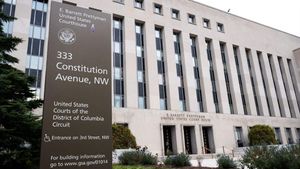



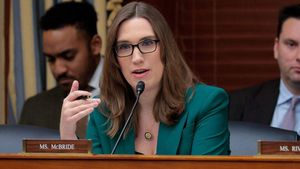
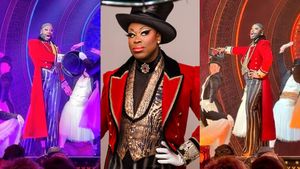























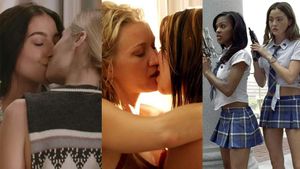



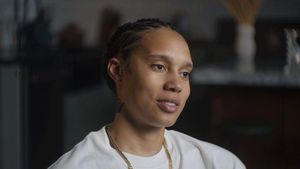






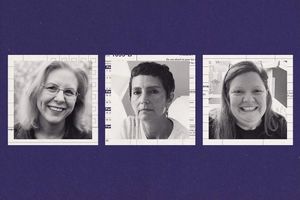



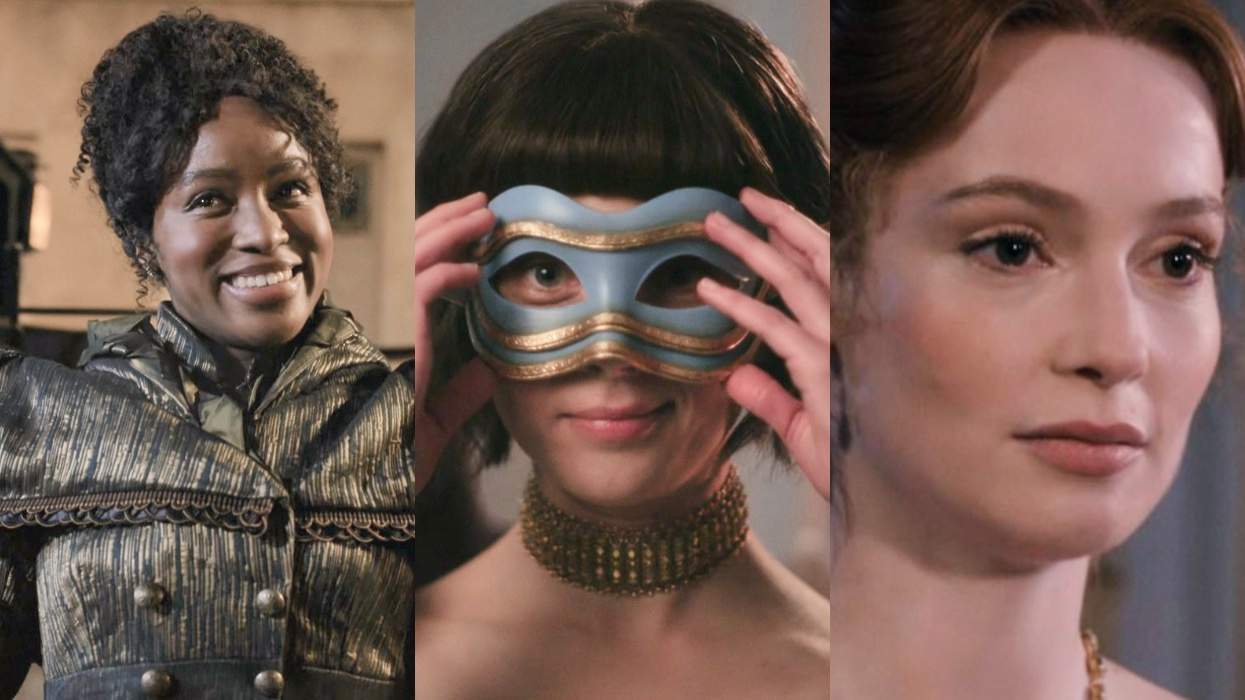

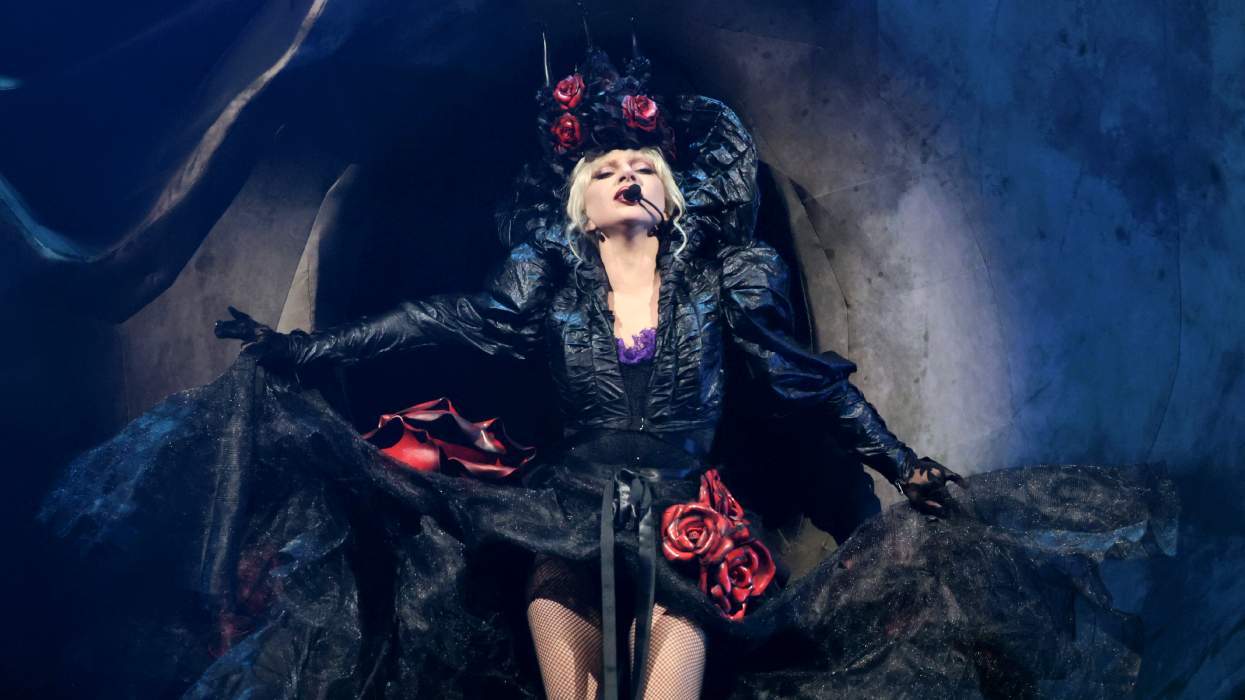





































 Cindy Ord/Getty Images
Cindy Ord/Getty Images























